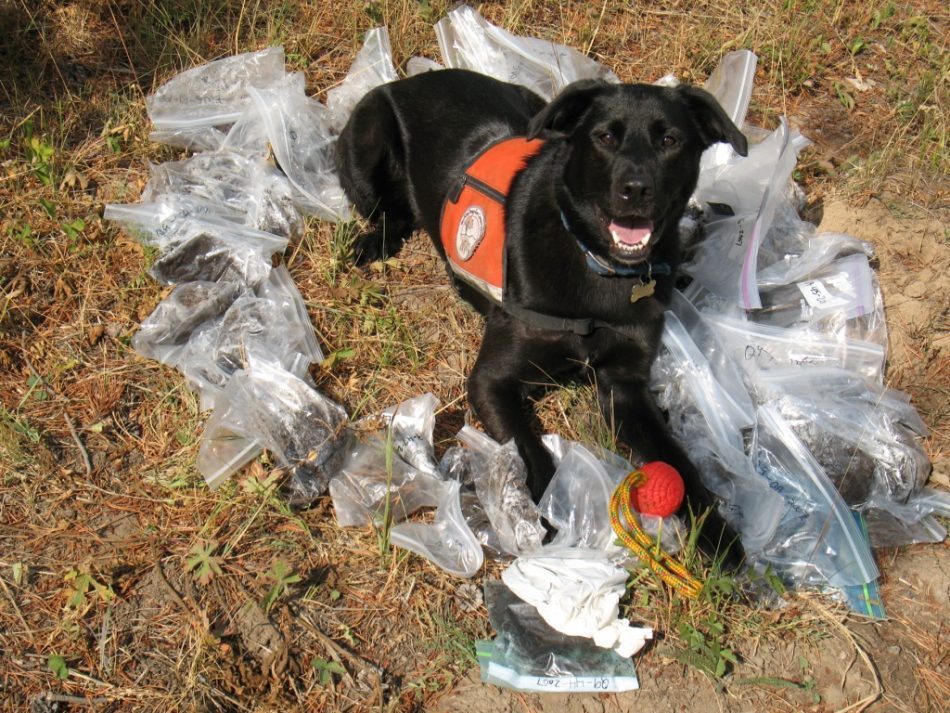Dogs and their sensitive noses are known for finding people during search and rescue efforts, sniffing out drugs and even diseases like cancer. Something they’re lesser known for is their ability to act as a radar for finding endangered animals.
To do that, dogs are being trained to identify the scents of endangered animals and their droppings, which helps scientists find out where endangered species live, how they behave, and what might be threatening them. This is a considerably less stressful way of monitoring species than trapping and releasing them.
Previously, conservation dogs have successfully tracked the San Joaquin kit fox, gray wolves, cougars, bobcats, moose, river otters, American minks, black-footed ferrets, and even the North Atlantic right whale.
More recently, scientists trained dogs to track the scat of the elusive and endangered blunt-nose leopard lizard in the San Joaquin Valley. After doing so, the scientists were able to retrieve the samples and determine the gender, population genetics, diet, hormones, parasites, habitat use, and health of the lizards. Over four years, they collected 327 samples and 82% of them were confirmed as belonging to blunt-nosed leopard lizards.
The researchers believe this method of tracking has even greater potential and are working to refine the method to see if it will work on a larger scale.












